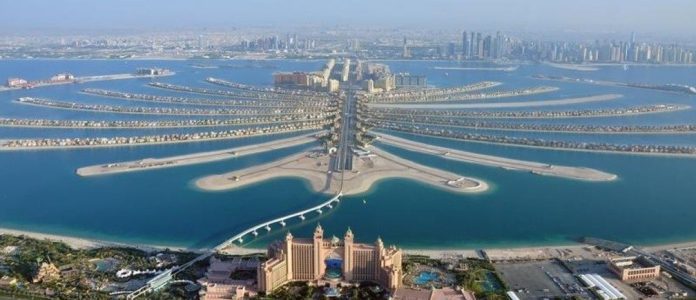Huawei is seeing increased opportunities for internet of things (IoT) projects in the Middle East. Safder Nazir, regional VP, digital industries, for Huawei’s enterprise business in the Middle East, told Enterprise IoT Insights that countries in this region are diversifying their economies and moving towards developing smarter and safer cities driven by various national transformation strategies.
“Huawei is committed to helping countries in the region to achieve their transformation goals by leveraging our global expertise and developing innovative solutions customized for this region,” the executive said.
According to Huawei, the cities in which there will be more opportunities for smart city and IoT deployments are Dubai and Abu Dhabi, in the United Arab Emirates (UAE) and Doha, in Qatar.
Abu Dhabi’s focus is on city infrastructure that will improve public safety and transportation, drive innovation and improve sustainability. The host of 2022 FIFA World Cup, Qatar, has ambitious digital and city infrastructure plans that will accelerate Doha’s smart city transformation, the executive said. Across Saudi Arabia there are a number of smarty city initiatives including Jeddah and the Royal Commission of Yanbu, Nazir added.
“We have several projects completed, underway and in the pipeline that support organizations’ efforts to make cities safer and smarter. For example, Huawei and Dubai Police joined forces to develop the Safe City Innovation Center ahead of Expo2020, which will embody the latest safe city technologies that will be available in the near future,” he said.
In the transportation sector, Huawei partnered with SamTech Middle East to develop a connected-vehicle solution to improve connectivity, safety and comfort across various forms of transport, including buses, taxis and trucks. The connected-vehicle solution features in-vehicle video surveillance, accurate passenger tracking, emergency services communication, real-time vehicle health data analysis and a range of multimedia passenger entertainment services, Huawei said. Additionally, high-speed internet connectivity allows high-definition in-vehicle video surveillance to monitor driver and passenger status, analyze driver performance, and highlight potential safety issues such as passengers not wearing seatbelts.
Huawei has also implemented a smart street solution in Dubai in partnership with Dubai Silicon Oasis Authority (DSOA). Digital signage in DSO displays news and information, while CCTV provides intelligent surveillance. The smart street pole can also be used to make public safety announcements in case of natural disasters or emergencies, the Chinese vendor explained.
In Dubai, Huawei has also recently announced a joint project with Dubai Civil Defence (DCD). Under this project, the vendor is working with DCD to help accelerate their ICT developments to meet the objectives of the Smart Dubai 2021 initiative. “By leveraging cloud data centers, SDN, big data, business continuity and disaster recovery (BCDR), unified communications, intelligent video surveillance and other smart city technologies, this partnership aims to develop solutions for a next-generation Smart City ICT infrastructure,” Nazir said.
Huawei has also partnered with the Roads and Transport Authority Dubai (RTA) and Dubai Electricity and Water Authority (DEWA) for other smart city initiatives.
Another area of Huawei’s smart city application in the Middle East is retail, where the company together with Walkbase, a retail and venue IoT analytics platform provider, have developed a crowd analytics and marketing solution that allows venue owners across districts, malls, airports, events halls and other venues to measure crowd flows and densities in real-time. In addition to monetizing this data to enhance the visitor experience by offering personalized content to visitors, it can also be used to identify overcrowded areas and bottlenecks in people flow and movement.
“In late 2016, Huawei signed partnerships with two prominent players in the industry in a bid to advance IoT technologies locally and regionally. The first was with Infocomm, a smart parking solutions and services provider, to collaborate on advanced smart parking solutions based on IoT technology. The second was signed with Al Mostajed Technologies, to integrate Narrow-band internet of things (NB-IoT) in smart metering technologies,” the executive said.
“There is a growing awareness across the region regarding the market opportunities coming from IoT in the enablement of digitally transforming industries. In order to help local enterprises, Huawei has been actively engaging with regional telecom operators and enterprises to not only share our vision of the technology trends, but also co-create solutions to solve our customer’s biggest challenges,” he said.
Image source: World Economic Forum

